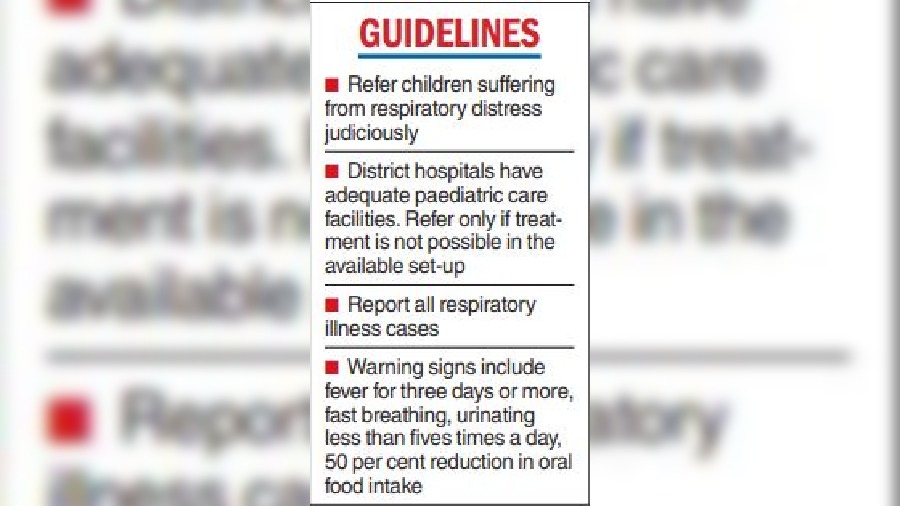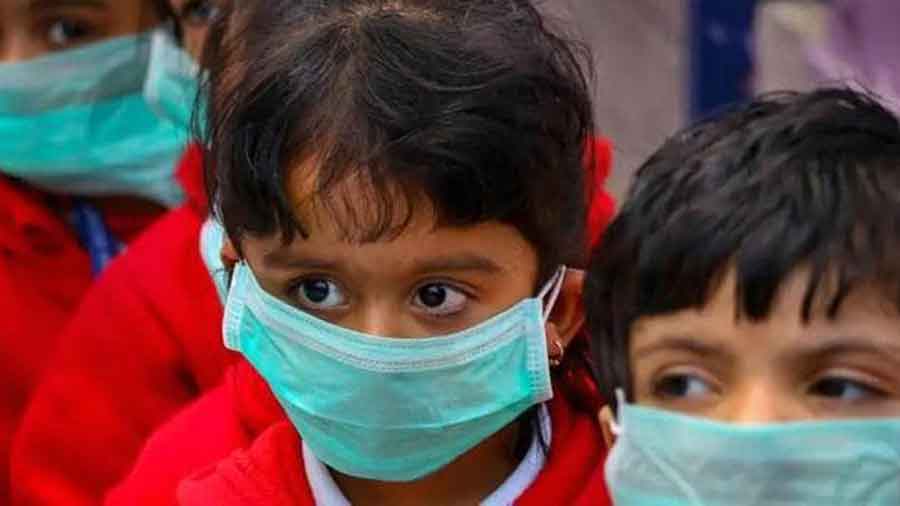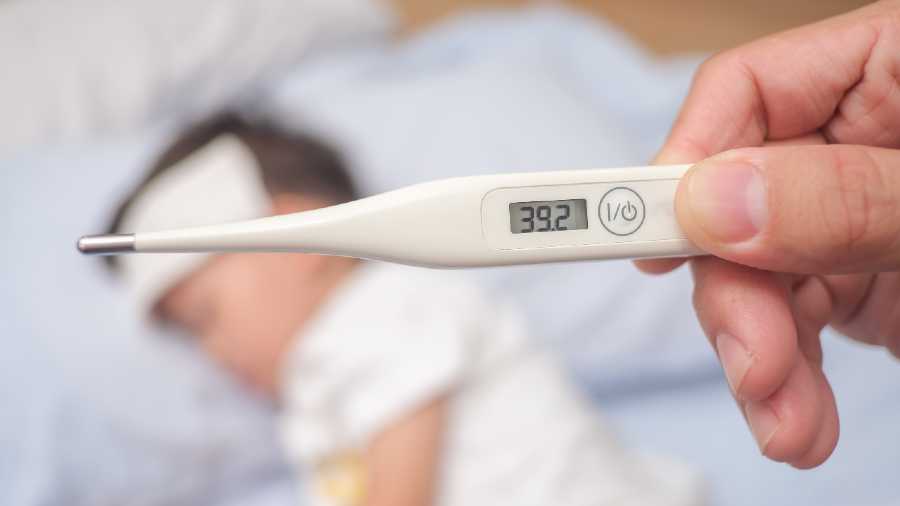The West Bengal health department has asked hospitals in the districts to refer children to Kolkata’s hospitals only if the treatment is not possible there, the advisory coinciding with a spurt in viral infections among kids that is driving up hospital admissions.
A health department official said admission of children, especially those less than two, has increased recently. Most of them are suffering from respiratory distress.
At a meeting with health officials from the districts and authorities of the hospitals, senior officials said government health-care facilities in the districts had adequate infrastructure to treat children with respiratory distress.
Referring such children to Kolkata’s hospitals will not only increase the load on the facilities in the city, but will force the patients to stay on the road — away from a hospital set-up — for a significant amount of time.
And, under no condition should a child be referred before doctors stabilise his or her condition, senior officials said.
Doctors said children with complaints of fever, cough and respiratory distress were coming to hospitals in large numbers. At the BC Roy Institute of Paediatric Sciences, more than 100 children with such symptoms were under treatment on Sunday. Half were in the critical care unit.
About 45 children with similar complaints were under treatment at the Institute of Child Health.
“We have enough paediatric care facilities in the districts. There is no reason why a child cannot be treated there. Referrals should be made judiciously,” said a senior official of the state health department.

The department has also asked hospitals to keep provisions so that paediatric beds can be increased quickly, if required.
The Telegraph reported recently that West Bengal has for long witnessed patients being denied admission in government-run hospitals and referred to other hospitals. Referring a patient without first stabilising his or her condition has led to deaths.
Now, the health department is trying to address these issues, officials said.
A health department guideline has listed warning signs that should prompt guardians to take a child to hospital — fever for three days or more, fast breathing, 50 per cent reduction in oral food intake and urinating less than five times a day.
Mihir Sarkar, a professor of paediatric medicine at the Calcutta Medical College and Hospital, said children were often catching the infections from elders in the family.
“Most of the viruses that are causing the illnesses are spread through sneezing, coughing and fomites. Infected people should wear a mask while speaking with others in the family,” he said.
Children are also catching the infection in school, Sarkar said. “Parents should not send infected children to school for a few days. The schools, too, should act in a lenient way because an infected child can go on to infect many others in a classroom,” said Sarkar.
Analyses of swab samples since January have shown a high presence of adenovirus, metapneumovirus, parainfluenza virus, bocavirus and rhinovirus, along with non-Covid-19 coronavirus.
Some doctors said they were also seeing the presence of influenza viruses like H3N2 and influenza A. All these viruses cause respiratory diseases.
A doctor at a state government hospital outside Kolkata said a sudden rise in infections among children leads to paediatric beds being filled up fast. In such cases, doctors in district hospitals are forced to refer children to tertiary care hospitals.
“All hospitals in districts do not have paediatric critical care beds. So doctors there will have to refer patients to a tertiary care hospital,” said the doctors.
Public health experts said the government should try to create a system where a bed is booked in a hospital to which a patient is being referred so that the patient receives treatment immediately after reaching the second hospital.


